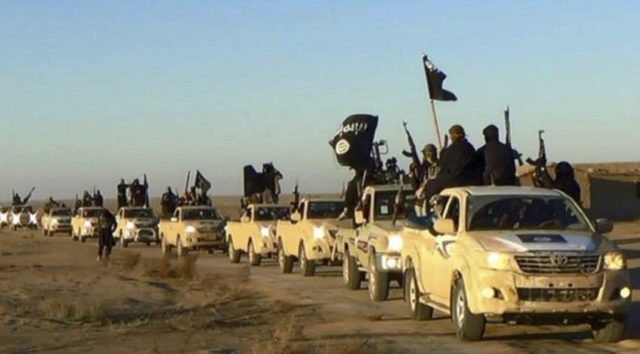U.S. Army Col. Ryan Dillon, spokesman for the international coalition against the Islamic State in Iraq and Syria (ISIS) said Thursday that as the terrorist group loses territory, it will shift to asymmetric warfare tactics in Iraq and Syria.
He said at a Pentagon briefing:
As we continue to, through our partners, take away ISIS territory and not allow them to conduct the — the large-scale attacks, the conventional-type fighting that we have seen, we do fully expect that they will devolve back into an insurgent-type organization that looks more like terrorists that conduct these — you know, prior to, you know, 2014, when ISIS came to rise. We expect to see some of the — seem them devolve into those type of actions.
He said, for example, the group is already relying more on using improvised explosive devices (IEDs) for 80 percent of its attacks in Syria, where it is trying to maintain its hold on its de facto capital of Raqqa.
Military experts have long feared that scattered hit-and-run attacks will become more prevalent with recent ISIS defeats on the battlefield. Such tactics are difficult to combat as they present an easy opportunity for terrorist groups like ISIS to blend into the civilian population in the region.
“Fighting in Raqqa continues to be intense, as fanatical ISIS dead-enders and foreign terrorist fighters left to die use the dense urban environment to try to cling to territory. ISIS continues to use the closely spaced buildings and tight streets of the city to hide large improvised explosive devices, attempting to slow the advances of the Syrian Democratic Forces who are clawing away at remaining hiding places,” Dillon said.
Dillon said the coalition was using intelligence, surveillance, and reconnaissance (ISR) assets to combat these asymmetric attacks.
“Anything that we can do to help identify where these IEDs are, these vehicle-borne IEDs, these factories, where they are being built and striking them prior to the ability of ISIS to use them, we will do those things,” he said.
“There are capabilities that we have and are using in Raqqa for that purpose,” he added.
Such terror is still prevalent in neighboring Iraq, despite the anti-ISIS coalition’s recent military victory against ISIS in Mosul.
“I was talking to a colleague yesterday from the embassy here, of an Iraqi family he talked about that returned to their house in Mosul and when they flipped on a light switch, it triggered a bomb in their neighbor’s apartment, killing several members of that family,” he said.
“While ISIS may not be physically present, they have shown time and again that they will continue to leave destruction in their wake. They will leave a clear intent — they have a clear intent to kill and maim civilians who wish to return home,” he added.
Despite the evolving nature of the fight against ISIS, Dillon remained confident in the anti-ISIS coalition’s efforts to ultimately defeat the Islamic State.
He stressed that “There is no sanctuary for ISIS fighters. We’re going to hunt them down and they will be eventually defeated throughout Iraq and Syria.”

COMMENTS
Please let us know if you're having issues with commenting.